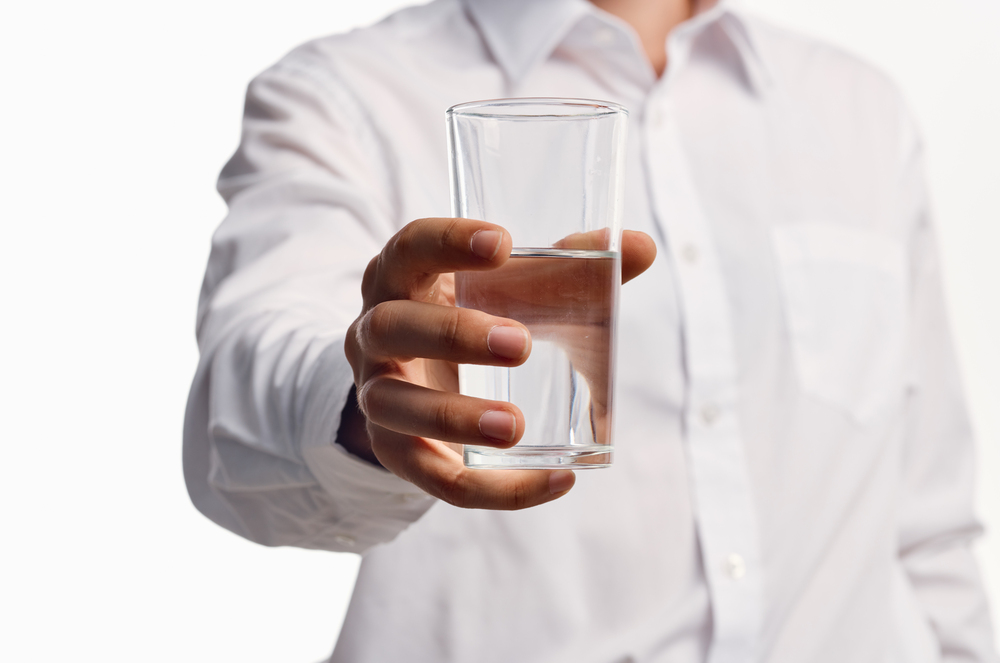The Link Between Dehydration and Erectile Dysfunction: Can It Cause ED?

Content by

Last Updated
Start a Consultation Today
Problems getting or keeping an erection?
Find an ED treatment that works for you with discrete next day delivery and no subscriptions.
Table of Contents
- The Link Between Dehydration and Erectile Dysfunction
- Can Dehydration Cause ED?
- How Do I Know If I Am Dehydrated?
- Tips to Improve Hydration and Erectile Health
- What Can I Take to Treat Dehydration-Induced Erectile Dysfunction?
- Can ED Treatments Cause Dehydration?
- Seeking Help for Erectile Dysfunction
Erectile Dysfunction (ED) is a prevalent condition that affects millions of men worldwide. It is characterised by having a difficulty in achieving or maintaining an erection sufficient for satisfying sexual activity. While the condition is commonly linked to factors such as medical conditions such as diabetes and cardiovascular diseases, and psychological factors such as stress and anxiety, another cause which is often overlooked is dehydration. Experts believe that there is a link between not drinking enough water and the ability to achieve or maintain an erection.
Continue reading as we explore how dehydration can cause erectile dysfunction, common signs to look out for, how to stay hydrated for better erectile performance, what you can take to treat it, and whether erectile dysfunction medications can actually cause dehydration.
The Link Between Dehydration and Erectile Dysfunction
Dehydration is when the body loses more fluid than it takes in. Sufficient water intake is essential for normal bodily functions. It brings nutrients to cells, improves blood flow, regulates body temperature, aids digestion, eliminates toxins and cushions joints. Elderly people are more at risk of becoming dehydrated. [1]
On the other hand, erectile dysfunction (ED) is a common condition in men over the age of 40. Common symptoms include the inability to achieve or maintain an erection firm enough for sexual intercourse. Some men also suffer from low sex drive. ED can be caused by a variety of factors including stress, performance anxiety, high alcohol intake, obesity and pre-existing health conditions. Certain medications can also contribute to ED.
While few studies show a direct link between dehydration and ED, they have similar risk factors:
Age
As mentioned earlier, older people, primarily over 60, are more prone to becoming dehydrated. As people age, their kidney function gradually decreases, making them less effective at conserving water when the body is dehydrated. This can lead to greater water loss and an increased risk of dehydration. Ageing can also lead to a diminished sense of thirst. Older adults often don’t feel thirsty until they are already dehydrated, meaning they might not drink enough fluids to replenish the water loss.
In addition, men between the ages of 40 and 70 are more likely to experience erectile dysfunction due to hormonal changes and health conditions such as heart disease.
Diabetes
People living with diabetes are more prone to health conditions including dehydration and ED. High blood sugar levels can damage blood vessels and nerves, including those that control erections. High blood sugar levels can also increase urine production as the body attempts to excrete excess sugar. If not replenished by adequate fluid intake, it can lead to dehydration.
Can Dehydration Cause ED?
Hydration is essential for overall health. If the body is dehydrated, side effects such as experiencing a difficulty in achieving or sustaining an erection can occur. Dehydration can cause erectile dysfunction in the following ways:
Decreased Blood Volume
Plasma is the liquid component of blood, which consists of over 90% water. When the body is dehydrated, the volume of blood plasma decreases. This makes it more difficult for the body to pump blood to all organs including the penis. Decreased blood volume prevents the corpus cavernosum (two columns of erectile tissue inside the penis) from getting sufficient oxygen and nutrient-rich blood necessary to achieve or maintain an erection, resulting in erectile dysfunction.
Furthermore, dehydration causes the blood vessels to tighten and become narrow. This causes high blood pressure and reduces blood flow throughout the body. Adequate blood flow is essential for normal erectile function. [2
Hormonal Imbalances
Dehydration can affect the body’s hormonal levels. The body needs water to produce hormones including testosterone, which plays a key role in male sexual health and penile function. When the body is dehydrated, testosterone production is limited, which can further contribute to erectile dysfunction.
Decreased Sexual Desire
When a person is dehydrated, their energy levels and mood usually falls. Fatigue and mood changes can decrease the desire for sexual activities. One study found that mild dehydration in men can cause tension, fatigue and anxiety. [3]
How Do I Know If I Am Dehydrated?
Recognising the signs of dehydration is crucial to prevent any negative affects on general health and erectile performance. Common indicators of dehydration include [4]:
- Feeling very thirsty
- Dry mouth, lips or tongue
- Dark-coloured urine
- Constipation
- Dizziness
- Headaches
- Muscle cramps
- Dry skin
- Sunken eyes
- Fatigue
Severe indications of dehydration include:
- Peeing less than usual
- Low blood pressure
- Rapid heartbeat
- Rapid breathing
- Irritability
- Confusion
- Fainting
Tips to Improve Hydration and Erectile Health
Here are some ways to maintain hydration levels for better erectile performance:
- Drink More Water - Health experts recommend men drink 3.7 litres (15.5 cups) of water daily to ensure normal body functions. [5] Men can drink more glasses of water by making it part of their daily routine. Carrying around a large water bottle and setting goals can encourage men to increase their water intake. Those who dislike the taste of water can add flavoured drops to make the taste more enjoyable. It is important to track your water consumption to ensure you reach the daily recommendation.
- Eat Water-Rich Foods - Fruit and vegetables such as melons, strawberries, cucumber, lettuce, celery and tomatoes, have a very high water content - ranging from 90% to 96%. Eating water-rich foods not only provides the body with essential nutrients but also further increases hydration levels.
- Limit Caffeine and Alcohol - An excessive amount of caffeinated drinks and alcoholic beverages increases urine production, leading to a risk of dehydration if fluid levels are low.
- Take Electrolytes - While water is vital, electrolytes are equally important for maintaining the body’s hydration levels. Electrolytes are minerals such as sodium, potassium and magnesium that help regulate fluid balance and muscle function. Electrolytes can be lost through sweat, and replenishing them is crucial, especially after exercise or during hot weather. Adding an electrolyte mix to your drinking water can be beneficial in these conditions.
What Can I Take to Treat Dehydration-Induced Erectile Dysfunction?
Ensuring proper hydration can help some individuals to overcome temporary ED. If, however, your ED symptoms persist even after improving your fluid intake, other treatments may need to be considered to regain normal erectile function.
Medication
One of the most effective treatments for erectile dysfunction is the use of PDE5 inhibitors. These medications function by inhibiting the PDE5 enzyme, thereby increasing blood flow to the penis. This enhancement in circulation helps men to get an erection firm enough for sex upon sexual arousal. PDE5 inhibitors come in oral tablet form, ranging from 5 to 50 mg. They are typically taken 30 to 60 minutes before engaging in sexual activities. The effects can last for 4 or 5 hours.
PDE5 inhibitors are prescribed by a doctor or purchased through an online pharmacy. There are many types of PDE5 inhibitors available at Chemist Click including:
- Viagra - also known as the “blue pill”
- Viagra Connect - available without a doctor’s prescription
- Sildenafil - a generic version of Viagra
- Cialis - available in a daily dose or 36 Hour dose
- Tadalafil - a generic version of Cialis
Before you purchase erectile dysfunction medication from Chemist Click, you will need to complete a free online consultation with one of our qualified pharmacists to find the best and safest option for your specific needs.
Can ED Treatments Cause Dehydration?
There is not enough research to suggest that erectile dysfunction medication, mainly PDE5 inhibitors, cause dehydration. However, the side effects of PDE5 inhibitors such as headaches can be indirect contributing factors. Viagra may have a diuretic effect, which means it causes the body to release excess water. If you think Viagra is causing headaches or dehydration, there are techniques that can help you to avoid getting a headache after taking Viagra.
If you suffer from severe headaches or a headache that won’t go away, speak to a doctor or pharmacist.
Seeking Help for Erectile Dysfunction
If you suspect that dehydration is affecting your sexual performance, addressing your water intake is a good first step. However, it's important to remember that ED can have multiple underlying causes, and persistent issues should prompt a consultation with a healthcare provider. Seeking professional help not only aids in identifying root causes but also opens the door to a variety of effective treatments. Remember, ED is a common issue, and seeking help is a brave and positive step towards reclaiming your health and well-being.
Sources
- NHS (2023). Erectile Dysfunction (Impotence). Retrieved 23rd October 2024, from: https://www.nhs.uk/conditions/erection-problems-erectile-dysfunction/
- Urology of Greater Atlanta. (n.d). Can Dehydration Cause Erectile Dysfunction? (ED). Retrieved 23rd October 2024, from: https://ugatl.com/can-dehydration-cause-erectile-dysfunction/
- Ganio MS, Armstrong LE, Casa DJ. (2011). Mild Dehydration Impairs Cognitive Performance and Mood of Men. Retrieved 23rd October 2024, from: https://www.cambridge.org/core/journals/british-journal-of-nutrition/article/mild-dehydration-impairs-cognitive-performance-and-mood-of-men/3388AB36B8DF73E844C9AD19271A75BF
- WebMD. (2023). Dehydration: Signs, Symptoms, and Effects. Retrieved 23rd October 2024, from: https://www.webmd.com/a-to-z-guides/dehydration-adults
- Mayo Clinic (2022). Water: How Much Should You Drink Every Day? Retrieved 23rd October 2024, from: https://www.mayoclinic.org/healthy-lifestyle/nutrition-and-healthy-eating/in-depth/water/art-20044256
Whilst all of our content is written and reviewed by healthcare professionals, it is not intended to be substituted for or used as medical advice. If you have any questions or concerns about your health, please speak to your doctor.
